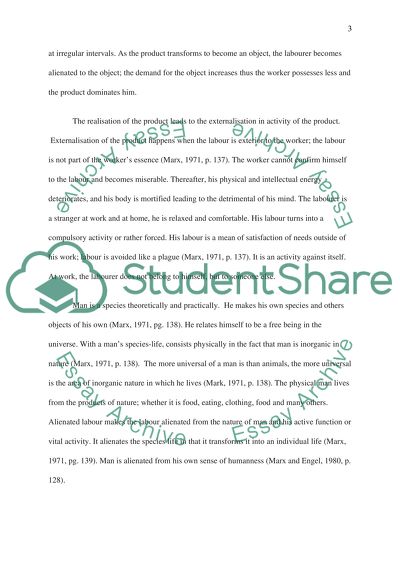Cite this document
(“Discuss Marxs analysis of the forms of alienation Are they still Essay”, n.d.)
Retrieved from https://studentshare.org/sociology/1682398-discuss-marxs-analysis-of-the-forms-of-alienation-are-they-still-relevant-for-understanding-contemporary-society
Retrieved from https://studentshare.org/sociology/1682398-discuss-marxs-analysis-of-the-forms-of-alienation-are-they-still-relevant-for-understanding-contemporary-society
(Discuss Marxs Analysis of the Forms of Alienation Are They Still Essay)
https://studentshare.org/sociology/1682398-discuss-marxs-analysis-of-the-forms-of-alienation-are-they-still-relevant-for-understanding-contemporary-society.
https://studentshare.org/sociology/1682398-discuss-marxs-analysis-of-the-forms-of-alienation-are-they-still-relevant-for-understanding-contemporary-society.
“Discuss Marxs Analysis of the Forms of Alienation Are They Still Essay”, n.d. https://studentshare.org/sociology/1682398-discuss-marxs-analysis-of-the-forms-of-alienation-are-they-still-relevant-for-understanding-contemporary-society.


